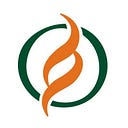Making pregnancy a choice, not a chance, in Malawi
In July, 23-year old Esther walked a fair distance to Area 18, a health center in Malawi’s Lilongwe District, since no family planning services were available in her area. She has one child and wants to wait before having a second. At the health center, Esther joined a group counseling session where all family planning methods were presented. Afterwards, during individual counseling, she shared her desire to wait at least five years before becoming pregnant. Once informed of her options, including long-term reversible contraceptives, she chose to receive an intrauterine contraceptive device (IUCD), and had it inserted right away.
“I will tell my friends about the IUCD,” says Esther. “I know the truth about how it works. We need to be careful not to pay attention to the stories people tell.”
For many Malawian women, pregnancy continues to be a matter of chance instead of choice. While the country has increased access to family planning and reproductive health services, district hospitals across the country face shortages of staff and resources, and family planning services are often not a priority service. Demand for family planning nationwide increased from 50% to 78% in the past two decades, while the modern contraceptive prevalence rate increased from 6.3% to 45.2% in the same period. This indicates a clear gap in supply and demand for meeting the need of women of childbearing age, with nearly 1 in 5 married women in Malawi having an unmet need for family planning.
The Area 18 health center serves a densely populated part of Lilongwe City and many neighboring communities. As part of the larger Bwaila health delivery area–one of the busiest maternity hospitals in southern Africa–staff at Area 18 see about 80 family planning clients and assist around 80 deliveries every month.
A baseline assessment at the Area 18 health center identified the need to ensure appropriate knowledge, demand, and autonomy to support voluntary family planning uptake among all its clients, including youth. Clients would often receive short-term methods and be rushed through with little discussion about their contraceptive needs, explanation of side effects, or information to consider long-acting or permanent methods. In response, the USAID’s ONSE Health Activity extended support through the placement of nested providers in the clinic.
Through the nested provider approach, ONSE has strengthened the capacity of Area 18 to deliver a wide range of family planning and reproductive health services. The model involves placing a nested team, typically consisting of a clinical doctor and a nurse or nurse-midwife employed by ONSE’s consortium partner, Banja La Mtsogolo (BLM), in high-burden facilities to provide hands-on training, supportive supervision, and mentoring to teams of government-funded health staff. In June and July of 2019, government-funded staff at the Area 18 health center provided comprehensive family planning services to 444 clients thanks to the mentorship provided by the nested providers.
The team in Area 18 has built skills in postpartum family planning, youth-friendly health services, and long-acting reversible contraceptives. For example, it is common to hear myths and misconceptions about IUCDs during group counseling sessions. Some claim they cause cancer or heart attacks, or that one cannot walk after insertion. Others attribute IUCDs to weight loss or hair loss and to a lower sex drive. ONSE’s approach considers social norms and cultural factors that often limit demand for FP services and supports provider and client engagement on these issues to dispel myths and misconceptions during group and individual counseling sessions.
Tiwonge Kaunda is a registered nurse-midwife based at the Area 18 health center. “I have knowledge and skills,” says Kaunda, “but I was not very competent and skillful after only my university training. I have been able to improve on infection prevention, group and individual counseling, and working with clients to make informed decisions.”
Nested providers are helping improve the facility at large, ensuring that equipment and supplies are readily available and contributing to better patient flow. Updated job aids and materials now contribute to an enabling environment for service delivery.
The nested team is also building the facility’s stock management capacity, including procuring contraceptives and essential supplies from the pharmacy, and efficient stock management of the family planning room, to ensure all modern contraceptive methods are available daily. Data collection and use in Area 18 has also improved; all services are now entered in the government’s family planning register, introduced by ONSE in July 2019.
The ONSE Health Activity is supporting local government and partners to expand the Nested Provider model to more high-burden facilities across the country. In the last year, nested providers have provided family planning services to 58,118 women across 11 districts, including short-term (72%), long-acting reversible (25%), and permanent contraception methods (3%). Nested teams will also provide service delivery and mentorship support during the Ministry of Health and Population’s integrated family outreach clinics to make long-acting reversible contraceptives and permanent methods more readily available.
“I am very thankful for the efforts, patience, support, and resources provided through the ONSE mentorship program,” says Nurse-Midwife Tiwonge Kaunda. “[Next], I want more training on IUCD insertion and would like to see more providers from my facility trained on how to provide effective services.”
To learn more about our work, visit msh.org and stay up to date with MSH by subscribing to our email series.
